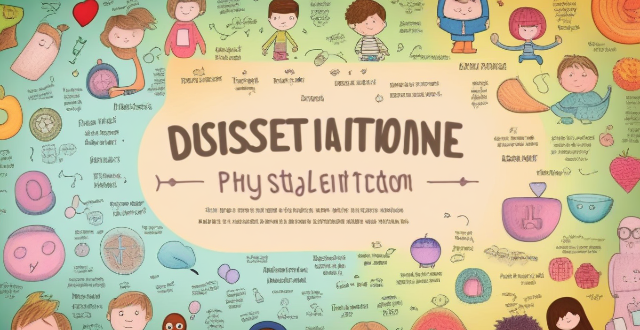Children Attention

Is there a link between screen time and decreased attention span ?
In the digital age, excessive screen time has been linked to decreased attention span. Studies show that prolonged exposure to screens can lead to reduced ability to focus, shortened attention span, and impaired memory retention. The relationship between screen time and attention span can be understood through mechanisms such as dopamine release, fragmented attention, disrupted sleep patterns, and reduced physical activity. Research findings support these claims, with studies showing that children and college students who spend more time on screens have shorter attention spans and lower academic performance. However, there are ways to mitigate these effects by setting limits on screen time, practicing mindful usage, taking breaks, engaging in physical activity, and prioritizing sleep. By being mindful of our screen habits and taking steps to mitigate their impact, we can maintain healthy attention spans and overall cognitive well-being.

What are the best home teaching strategies for children with ADHD ?
The article presents a comprehensive guide on effective home teaching strategies for children with ADHD, emphasizing the importance of structured routines, distraction-free environments, task breakdown, time management tools, incorporation of movement breaks, visual aids, immediate feedback, and open communication. These strategies aim to enhance focus, reduce anxiety, and improve overall academic performance and well-being for children with ADHD.

How can women deal with sexual harassment or unwanted attention while traveling ?
Dealing with Sexual Harassment or Unwanted Attention While Traveling: - Be Aware of Your Surroundings - Dress Appropriately - Use Body Language - Learn Key Phrases in the Local Language - Keep Your Belongings Close - Stay in Groups - Trust Your Instincts - Seek Help When Needed - Document the Incident - Report Incidents When Appropriate

Is there a connection between multitasking and reduced attention span ?
The article discusses the potential negative impact of multitasking on attention span and suggests strategies to improve focus and productivity. The main points are: 1. Multitasking can lead to divided attention, overloaded cognitive resources, and habituation to short-term stimuli, all of which can reduce attention span. 2. To improve attention span, it is recommended to prioritize tasks, take breaks, and minimize distractions. 3. By implementing these strategies, individuals can enhance their ability to focus and maintain attention on important tasks.

How can parents promote healthy developmental milestones in their children ?
This article provides tips for parents on how to promote healthy developmental milestones in their children, including providing a stimulating environment, encouraging social interaction and physical activity, teaching self-care skills, and fostering independence.

How can parents effectively teach their children about safety ?
Teaching children about safety is crucial for their well-being. Parents can effectively teach their children about safety by establishing clear rules, educating them about potential dangers, practicing safety drills, encouraging open communication, and modeling safe behavior. By doing so, children will develop awareness and the ability to protect themselves from potential dangers.

Is there a connection between physical fitness levels and academic performance in children ?
This text discusses the potential correlation between physical fitness levels and academic achievement in children, highlighting research findings that suggest a positive relationship. It outlines various mechanisms through which physical activity may improve cognitive functions and behavior, leading to better academic performance. The text also emphasizes the importance of incorporating physical education into school programs and encourages family and community involvement in promoting physical activities among children.

How do I provide for minor children in my estate plan ?
When it comes to estate planning, one of the most important considerations is how to provide for your minor children. Here are some steps you can take to ensure that your children are taken care of financially and emotionally after you're gone: Create a will or trust, name a guardian, establish a trust fund, consider life insurance, and make sure your beneficiaries are up-to-date.

How can children be encouraged to speak up if they feel unsafe ?
The article emphasizes the importance of creating a safe and supportive environment for children to express themselves without fear of judgment or criticism. It suggests educating children about personal safety, role-playing different scenarios, and discussing potential consequences of not speaking up if they feel unsafe. The article also recommends teaching children who to trust, encouraging them to use their voice, and providing options for seeking help. Overall, it highlights the significance of empowering children to take action and advocate for their own safety.

What role do children play in combating climate change ?
The article emphasizes the pivotal role children can play in combating climate change. They can contribute through education and awareness, innovation and creativity, advocacy and action, and by making sustainable lifestyle changes. By empowering children to understand and act on climate issues, we can ensure a more sustainable future for all.

How can parents encourage their children to develop new skills through interactive activities ?
The article provides strategies for parents to encourage their children's skill development through interactive activities. It emphasizes the importance of hands-on, engaging learning experiences and offers specific tips for creating a supportive environment, involving children in planning, modeling behavior, offering praise, making learning fun, allowing for trial and error, providing practice opportunities, connecting learning to real life, and being patient and persistent. The goal is to help children become well-rounded individuals who are motivated and equipped for future challenges.

What are some of the best sports movies for children ?
Sports movies can inspire children to be active, learn teamwork, and develop a love for sports. Here are some of the best sports movies for children: The Sandlot (1993), Miracle (2004), Cool Runnings (1993), Remember the Titans (2000), The Blind Side (2009), A League of Their Own (1992), Coach Carter (2005), The Bad News Bears (1976), Space Jam (1996), Million Dollar Arm (2014).

How can parents balance work and home teaching strategies for their children ?
Parenting in the modern era is a challenging task, especially when it comes to balancing work responsibilities with home teaching strategies for children. Here are some tips: - Set priorities by identifying what is most important and allocating time accordingly. - Create a routine that provides structure and predictability for both parents and children. - Utilize technology as a tool for supplementing learning outside of traditional school hours. - Involve children in household chores to teach them valuable life skills while also freeing up more time for parents. - Seek support from others such as grandparents, babysitters, or other family members who are willing to lend a hand.